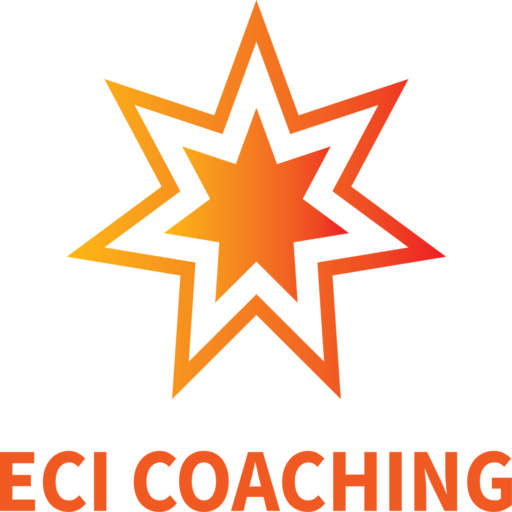- Heart is in the right place
In order for a coach to really impact their client, they have to be able to want what is best for their client and be an amazing stand for their client without harming themselves. There are some people who are extremely compassionate and want the best for somebody else but they tend to do so at the expense of themselves. Usually the psychology of such a person is that they expect to be remunerated in emotional terms at some point of time from their clients or through a similarly unhealthy relationship from somebody around them. This tends to lead into a destructive cycle where the coach ends up feeling they have given too much and that they need to address the balance in some way or another.
Having the heart is the right place also fundamentally means that the coach has access to self-love and has a capacity for love for other people. This is critical as you will be emotionally unable to touch your client in the slightest should you be all about results and nothing else. If a client would only be affected by mere demands for performance, a whip would serve better, not a coach.
- Willingness to evolve
A simple way of understanding what a coach needs to do is to consider that the client is trapped inside a loop that contains, for example, 5 factors. In order for a coach to be able to assist the client, they have to be able to see a minimal of 6 factors. If a coach cannot see more than a client, then they are effectively incapable of assisting the client. The question is, how many factors would your next client know? So, there are many coaches who pick up experience at a regular rate of their clients, which doesn’t cut it. A coach is somebody who is able to bring new perspectives to their client, and also questions the premises of the client’s understanding that connect to the deeper things that matter to the client. This means that the coach has to evolve preferably faster than the typical client they take on. If anything, they have to become a better human being who is also more skillful and has a wider range of understanding at a faster pace. If coaches were meant to bring wisdom to their clients, a coach has to invest in him/herself to become wiser as soon as possible, and as much as possible. A casual way of checking with your coach/client is to ask them what they have learnt recently.
- Convincing enough levels of success
Coaches need to be successful; not overtly successful in specific fields but they have to be successful in 2 ways. Firstly, they have to be successful as a coach that they are able to bring to fruition their clients input, together with their skills and abilities and cause their clients to be successful in achieving their goals and moving along their process. It is insulting to imagine that any client can actually be satisfied for long on the basis that while they don’t have any results, they are forever in the process of getting there. We are already getting there, so what is the use of a coach that tells you the same thing, to which they nod their head and just say “See you next week”.
If coaches are supposed to produce results, then very simply, “show me the money” – firstly in the clients they work on, and secondly in their own lives. If a coach cannot prove with themselves that the techniques they apply as a coach work to cause successful results in their own lives, they cannot walk the talk. If you are as smart as your coach, you should fire him/her. For example, don’t ever hire a relationship coach that has a failed marriage who insists that he/she is qualified to coach because she/he knows how it is to fail. You can only learn what not to do from people who fail and you’ll learn what success is from people who succeed.
- Capabilities in disciplines besides coaching
One of the most rewarding aspects of being a coach is that the job requires you to do things you are passionate about other than coaching. Interestingly enough, while you are pursuing the things you are passionate about, your clients are inspired by you. It is my personal opinion that if a coach doesn’t learn and grow in areas that fascinate them, they are not really expanding as a person. Particularly, coaches that deal with integral philosophies need to show that they are living an integral philosophy. And if a coach doesn’t have a rich life, the least is that they should be working on their areas of interest.
There is value in acquiring other disciplines because one tends to be able to pick up principles of the way things work. As a result, they will be able to understand the categories that work in conjunction with each other and also how they work in antagonism to each other. This means that one learns to be a better learner the more one learns. If you are teaching and educating your clients in their expansion of their worlds, this becomes a vital skill. If, for instance, you are as disciplined in the culinary arts as you are a coach, you could bring a new dimension of understanding to the way your clients can succeed. My recommendation is that you have a physical mastery, on top of a mental mastery, on top of professional mastery. It also helps if you have an emotional mastery.
- They have the best teacher they could have found
This is both a useful requirement, as well as an amazing philosophy to own. One of the great things about finding teachers who are really good at what they do is that they possess a mastery of skills that you are looking at that intermediary teachers do not have. Masterful teachers learn and display special combinations that ordinary teachers tend not to. There is a reason why they are in the top of their fields or areas. As long as it is not a false veneer of publicity of marketing but rather, that this teacher really has masterful skill sets, they are definitely worth the investment and effort you put into learning from them. The attitude is really about learning to run off the ‘karma’ of your relationship with your teacher, that you are able to learn all that you can learn from this master so that you are ready to learn from the next teacher. It is also about learning how to appreciate the teachers that you have and personally, I think it is essential to always honour your teacher for what they have contributed to you. Unfortunately, many of my teachers have left the planet and I am eternally grateful to their wisdom that they have given me, the inspiration that they have been for me. On a small little side note, I tend to pursue the best teachers in their fields in the world. Great people, all of them.
- Moral courage
Coaches should never be afraid to put their clients in place especially when they deserve it. However, in order for coaches to be able to do that, they have to stand on relatively solid moral ground. You can scarcely tell your client to do their homework when you yourself hardly do any homework. You can’t really inspire your clients if you are not inspired yourself. So in a sense, coaches have to lead their clients by their own examples, and while coaches are not expected to be perfect, it is reasonable to expect that they are making progress in their own terms. Very often, clients need to be shown a range of possibilities, and if one of their possibilities includes falling into a hole in the ground I am of the opinion that the coach should do everything to stop the client from falling in. I also believe that sometimes the client would need a hand and it does make a difference if you reach out to the client at the right time, which would be a critical moment for them without making it into a dependency. Coaches are hired to make a difference. The question is, what is the degree of difference that you, as a coach, are capable and willing to make?
- Champion for champions
It is a poor showing of a coach to become envious of their client’s success, and it happens more often than you think. But I frankly doubt the coach would have the moral courage to admit they are jealous of their client’s success. Me, I tell my clients all the time! But at the same time I feel a genuine pride for the coaches and client I have trained who have gone on to become successful in their own right. Of course it feels good (for my ego) when a successful client or coach turns around and attributes some of their success back to what they have done with me. It is even more interesting when somebody comes to me and says “I see you’ve made xxx so successful. Can you make me more successful than him/her?” It is great to know that the people whom I have inspired are now inspiring others. At the core of it all, it starts with wanting somebody else to succeed. And when they do, you are happy to have been a part of that journey. I think this is a great attitude to share because more than making a difference, it is more effective to be able to make a difference by making others make a difference.
Find out how YOU can gain an international coaching credential with the Professional Coach Training Program™. We have trained hundreds of successful coaches with our proprietary methodologies who have received their certifications from the International Coach Federation (ICF), the leading global organization for coaches with more than 22,000 members in over 100 countries.


